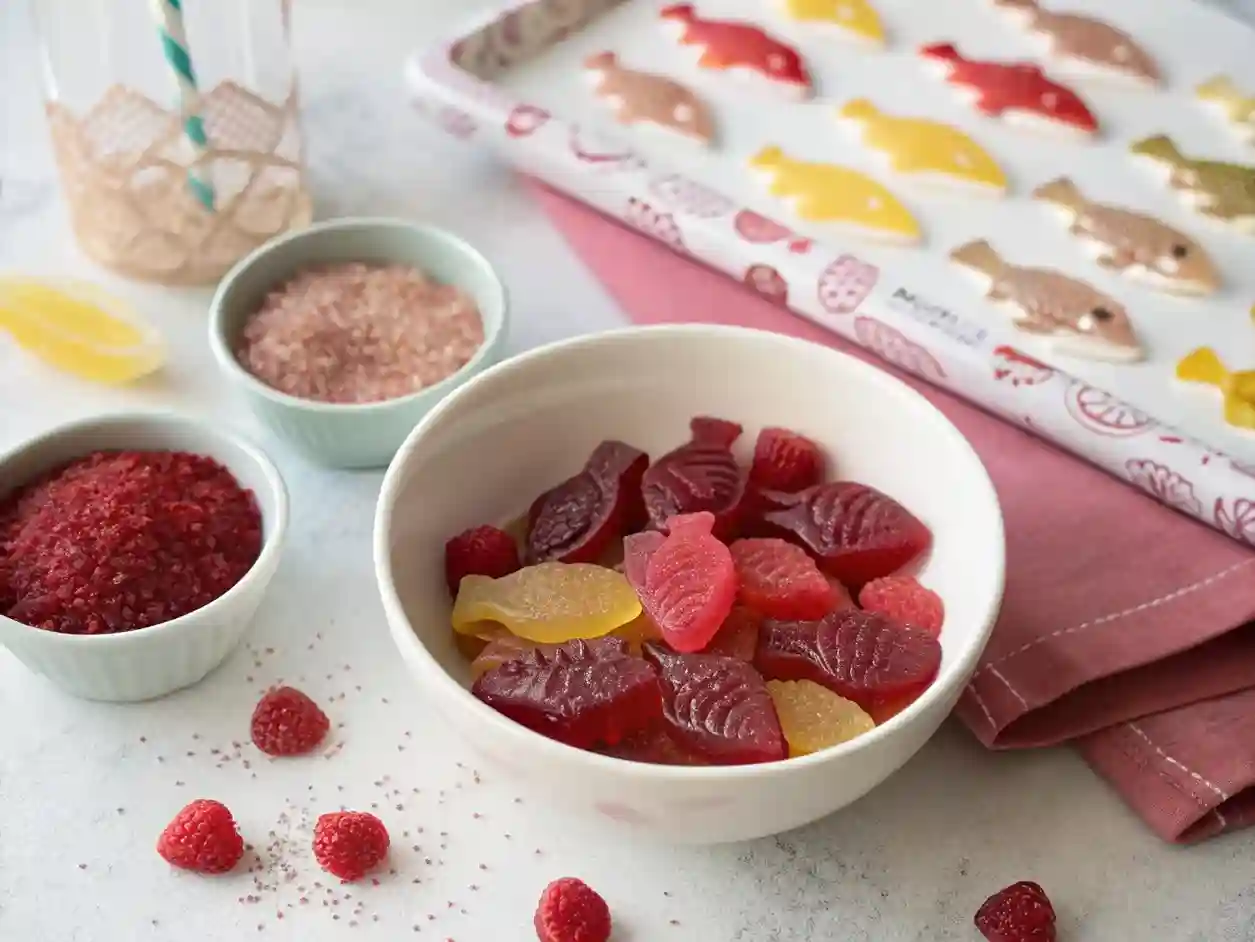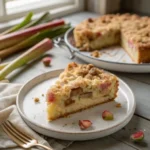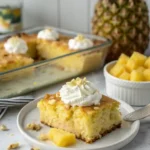Swedish Fish Aesthetic aren’t just candy—they’re a bite-sized celebration of the Swedish Fish aesthetic. Born in 1950s Sweden, these fish-shaped gummies captivate globally with their chewy texture, fruity flavor, and iconic red hue. Their charm runs deeper: the playful silhouette honors Sweden’s fishing heritage, while their bold, minimalist design embodies Scandinavia’s love for vibrant simplicity.
In Sweden, candy is a Saturday ritual called lording’s goodies (“Saturday candy”), where families fill bags with “loose sweets” from rainbow-colored store displays. By crafting your own Swedish Fish, you blend tradition with creativity, turning edible art into a personal homage to the Swedish Fish aesthetic. Ready to dive in? Let’s explore how to make these treats your own!
Table of Contents
Why Homemade Swedish Fish Aesthetic Shine
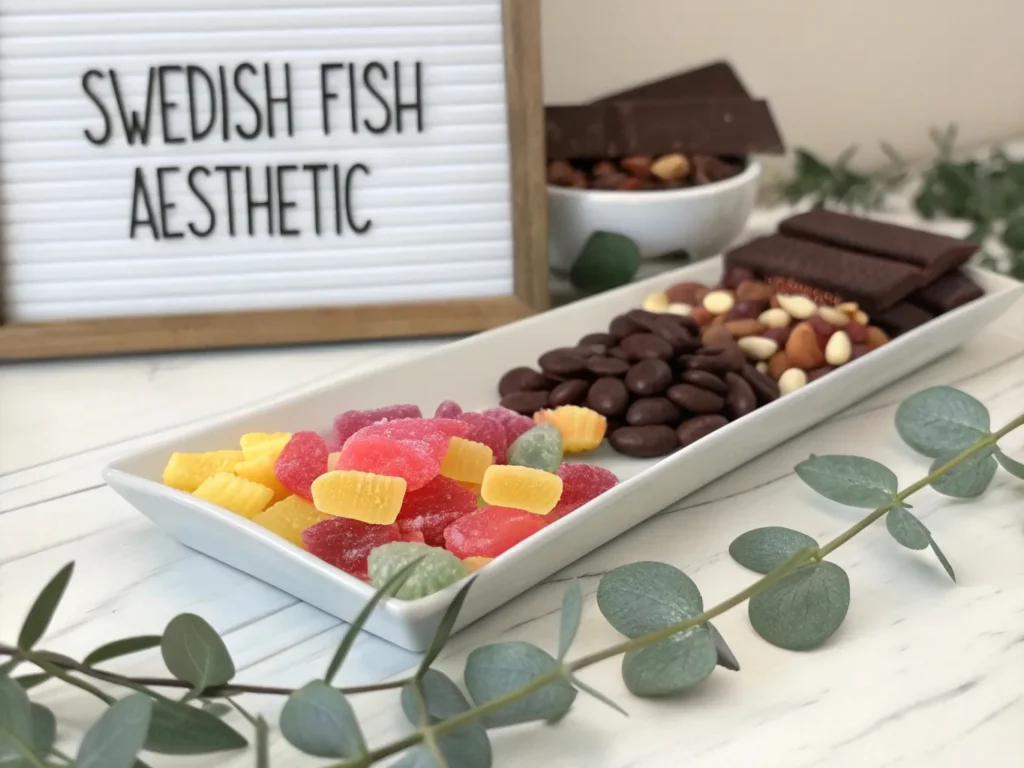
- Custom Flavors & Colors: Swap artificial dyes for beet juice or matcha. Prefer tangy lime over classic raspberry? You’re the boss!
- Dietary Flexibility: Use agar-agar for vegan gummies or reduce sugar for a healthier bite.
- No Preservatives: Control what goes in, skipping store-bought additives.
- Creative Play: Add edible glitter, layer colors, or pair with sour Bubs candies for contrast.
Essentials for Authentic Texture Swedish Fish Aesthetic
Makes 50–60 fish
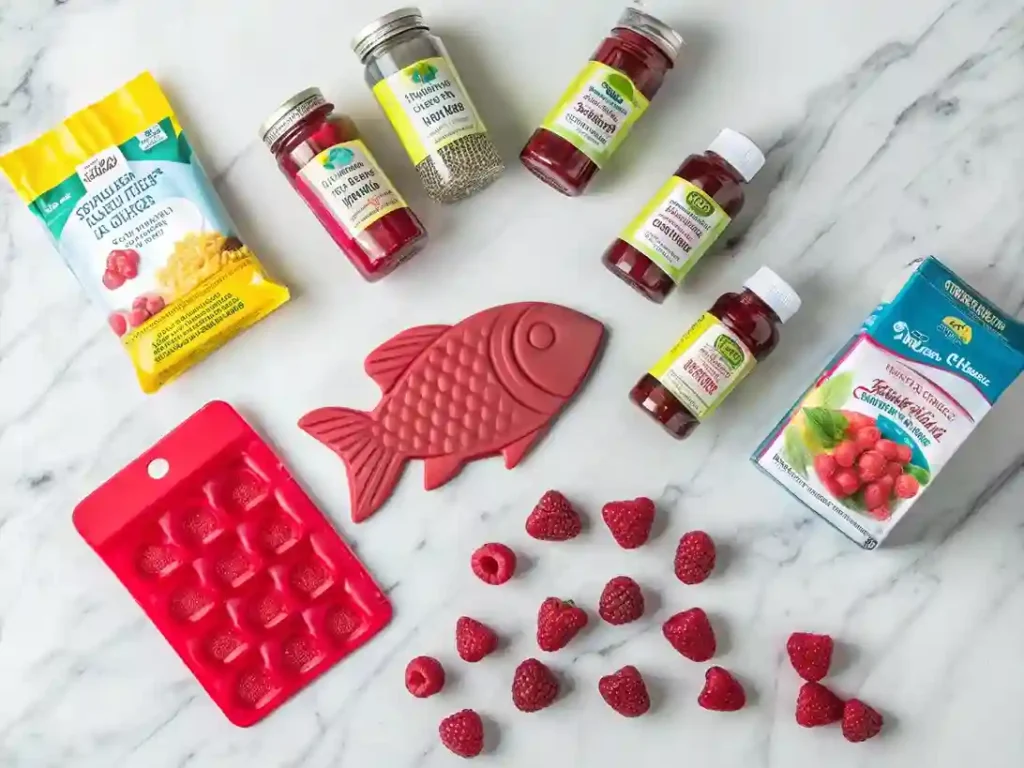
Below is a list of what you need to create a homemade version of candy inspired by Swedish Fish. Feel free to adjust exact amounts based on personal taste or dietary needs.
- Sugar (preferably fine granulated)
- Corn syrup (for smooth texture and to prevent crystallization)
- Gelatin (or pectin/agar if going the vegetarian/vegan route) at a Swedish candy company.
- Water (helps dissolve sugar and supports texture)
- Fruit extract (choose your preferred flavor, like raspberry)
- Food coloring (optional, pick a vibrant red or another bright color)
- Cornstarch (useful for dusting molds and preventing sticking)
- A pinch of salt (helps balance the sweetness)
Candy thermometer (to monitor cooking temperature)
Fish-shaped candy molds (or any shape you prefer—an octopus, a simple oval, or a classic bonbon form)
You can also incorporate other flavors if you like. For instance, a hint of blueberry or a swirl of
watermelon extract can set your candy apart. If you want a more adventurous approach, you can experiment with licorice flavoring, evoking the widely loved but sometimes polarizing traditions of Swedish bubs candy and other bubs products. Keep in mind any gluten, gluten-free, or personal dietary considerations when choosing ingredients.
Crafting Your Swedish Fish Aesthetic Step-by-Step
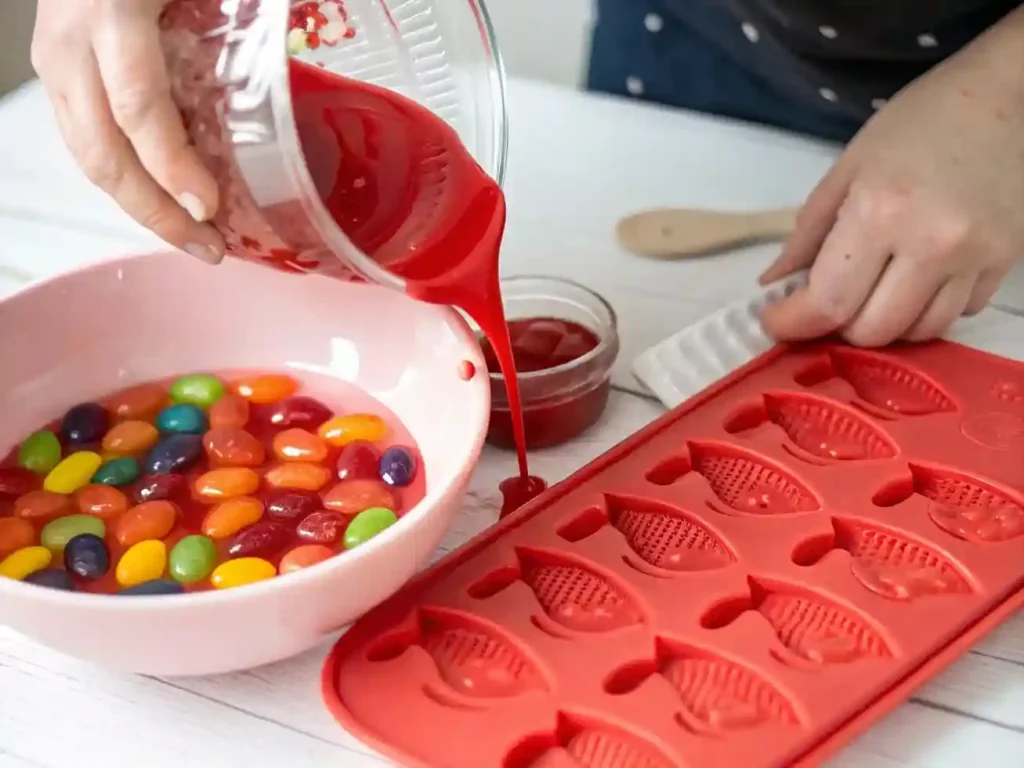
- Prepare Your Equipment: Begin by lining a tray with parchment paper or lightly coating candy molds with a thin dusting of cornstarch. This step ensures your candies won’t stick later. Set up a candy thermometer so you can keep track of the temperature accurately.
- Combine Sugar and Corn Syrup: In a saucepan, mix your granulated sugar, corn syrup, and a bit of water over medium heat. Stir gently until the sugar dissolves, and then stop stirring to let the mixture come to a boil. The sugar solution must reach the soft crack stage, roughly 270–290°F, so keep an eye on that thermometer.
- Add Gelatin: While the sugar mix heats, bloom your gelatin (or chosen substitute like agar or pectin) in a separate small bowl of cool water. Once the sugar solution hits your target temperature, remove it from heat. Gently stir in the bloomed gelatin until everything is completely combined. This step creates the base for that signature gummy consistency.
- Flavor and Color: Mix in your chosen fruit extract (classic Swedish Fish are often associated with a gentle berry-like taste) to enhance the flavor of your Swedish treats. Add the food coloring if you want to capture that bold red hue, or choose another color if you prefer. This is also a good time to experiment with flavors like banana toffee, sour fruit, or even a mild cola twist if you crave variety.
- Fill the Molds: Carefully pour the warm candy mix into your prepared molds. If you aim for a shape reminiscent of another Swedish candy or a bon bon, a delightful addition to any selection of Swedish treats., go for molds that match your preference. Let the candies rest in the molds at room temperature until they firm up, just like traditional Swedish treats.
- Cool and Set: After a couple of hours, the candies should solidify enough to pop out of their molds. If they remain too soft, you can refrigerate them briefly, though most recipes suggest a cooler room temperature sets them best.
- Finishing Touches: Dust the finished candies with a light layer of cornstarch or powdered sugar if they seem sticky. This final detail can help maintain the glossy outside while keeping them from clumping together in storage.
Elevate Your Gummy Game Swedish Fish Aesthetic
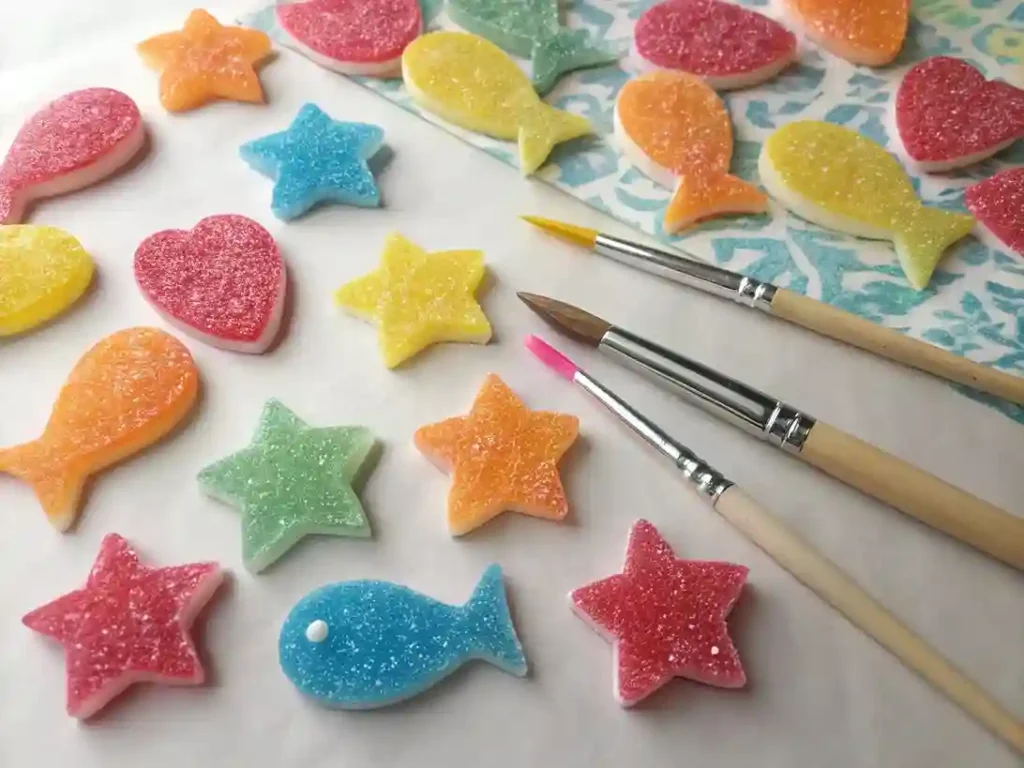
- Controlling Chewiness: The ratio of sugar, corn syrup, and gelatin (or vegetarian alternative) directly affects the candy’s firmness. If you like your candy extra chewy, add a touch more gelatin or reduce the water slightly. If you want a softer texture, do the opposite.
- Flavor Experiments: Traditional Swedish Fish ingredients emphasize fruity notes. However, you could create a marshmallow twist by adding a little whipped gelatin at the end for a fluffier bite. If you love bold tastes, try salty licorice or sweetish blends that combine sugar and salted flavors. This approach echoes the variety of Swedish candy offers. Swedish gummies you might find in a pick and mix candy aisle.
- Bonbon vs. Fish Shape: You can pour your mixture into a classic fish-shaped mold or go for a round bonbon form. If you desire a more artisanal look, shape the candy into logs or oval pieces and slice them. This creativity captures the spirit of bonbon’s craftsmanship and ensures your sweets look as good as they taste.
- Batch Sizes: Homemade candies can store well if you keep them in an airtight container. You can even treat them like loose candy and place them in decorative jars, reminiscent of the candy salad approach—where multiple candy varieties appear in a single dish.
- Dietary Modifications: If you need a gluten-free sweet treat, double-check all flavorings and colorings. Most basic recipes are naturally gluten free, but always read labels. For a vegetarian or vegan spin, use agar powder instead of gelatin while noting that your final texture might be slightly different.
- Colorful Creations: Finally, don’t be afraid to make your candy eye-catching. Some folks swirl in multiple colors for a rainbow effect or dust them lightly with citric acid for that extra pucker factor, similar to those tangy sour gummies that pop up across the globe.
Serving Suggestions: Show Off Your Swedish Fish Aesthetic
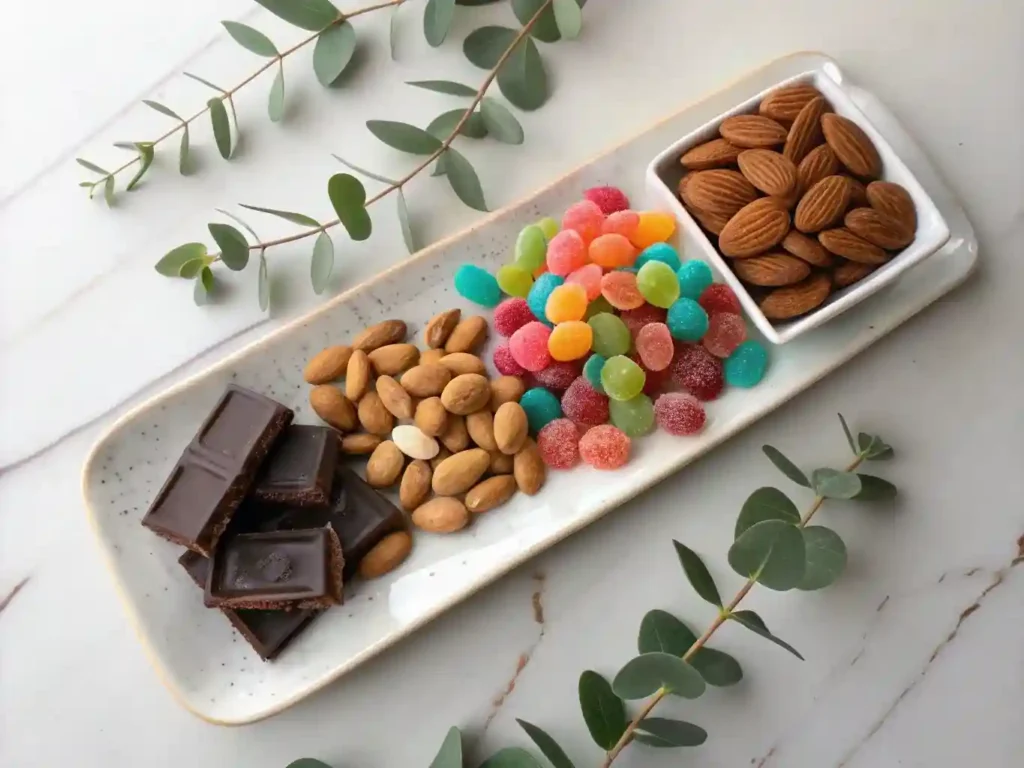
Making these fish-shaped sweets is just the start. Presenting them in appealing ways can enhance the candy experience:
- Candy Charcuterie Boards: Pair with salty nuts, dark chocolate, and Bubs for a sweet-sour spread.
- Gift Jars: Layer gummies in clear jars with ribbon—perfect for party favors.
- Themed Parties: Scatter fish atop cupcakes or freeze in ice cubes for “fishing” cocktails.
Overall, the best candy presentations are the ones that match your personal style. Let the bright shape and color of homemade Swedish Fish–inspired goodies shine wherever you serve them.
Conclusion: Embrace the Joy of Edible Art
Embrace the Swedish Fish aesthetic by crafting homemade candies that blend nostalgic charm with creative flair. Recreate their iconic vibrancy through customizable flavors, bold colors, and dietary-friendly tweaks—all while honoring Sweden’s beloved “loose candy” tradition. Whether styled as classic red gems or playful modern twists, these fish-shaped delights transform snacks into edible art, capturing the whimsy and joy that make Swedish Fish a timeless symbol of sweet imagination.
FAQs
What are some interesting facts about Swedish Fish?
Swedish Fish originated from a Swedish candy company. Malaco Swedish Fish, a company in the lower east side. Sweden. They were later distributed widely and became a hit in the American candy market. There’s ongoing debate about their flavor, but most people link it to fruit or a unique blend of berry notes. Questions like Why are Swedish Fish, my favorite candy, so good? or Why are Swedish Fish red spark discussions online, sometimes involving Swedish Fish Oreos or limited-edition flavors.
How long do Swedish Fish stay good?
Commercially packaged Swedish Fish often have a long shelf life thanks to stable Swedish Fish ingredients, which typically include sugar, invert sugar, and other stabilizers. Homemade versions can last a few weeks in an airtight container, though freshness and texture may begin to decline after that. Keep them away from heat or moisture for the best results.
What gives Swedish Fish their texture?
The chewiness in Swedish Fish comes from using ingredients like invert sugar, modified starches, and certain binding agents. For homemade candy, gelatin (or alternatives instead of gelatin) plays a major role. This combination of sugar and a gelling ingredient is essential for producing a gummy texture that people enjoy.
Why are Swedish Fish so sticky?
Swedish Fish can turn sticky if exposed to high humidity or if they contain extra moisture. Their sugar coating, combined with the commitment to quality in their design, makes them prone to clumping if not stored properly. Wrapping them securely, or dusting them with a little cornstarch, helps avoid stickiness and preserves their shape.
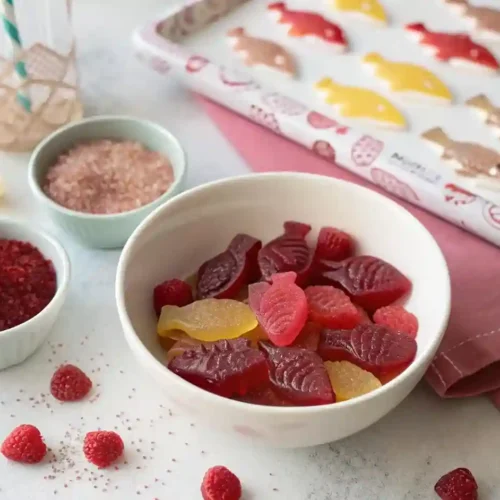
Swedish Fish Aesthetic You Will Love: A Homemade Guide
Ingredients
Sugar (preferably fine granulated)
- Corn syrup for smooth texture and to prevent crystallization
Gelatin (or pectin/agar if going the vegetarian/vegan route) at a Swedish candy company.
- Water helps dissolve sugar and supports texture
Fruit extract (choose your preferred flavor, like raspberry)
- Food coloring optional, pick a vibrant red or another bright color
Cornstarch (useful for dusting molds and preventing sticking)
- A pinch of salt helps balance the sweetness
Candy thermometer (to monitor cooking temperature)
- Fish-shaped candy molds or any shape you prefer—an octopus, a simple oval, or a classic bonbon form
Instructions
Prepare Your Equipment: Begin by lining a tray with parchment paper or lightly coating candy molds with a thin dusting of cornstarch. This step ensures your candies won’t stick later. Set up a candy thermometer so you can keep track of the temperature accurately.
- Combine Sugar and Corn Syrup: In a saucepan, mix your granulated sugar, corn syrup, and a bit of water over medium heat. Stir gently until the sugar dissolves, and then stop stirring to let the mixture come to a boil. The sugar solution must reach the soft crack stage, roughly 270–290°F, so keep an eye on that thermometer.
Add Gelatin: While the sugar mix heats, bloom your gelatin (or chosen substitute like agar or pectin) in a separate small bowl of cool water. Once the sugar solution hits your target temperature, remove it from heat. Gently stir in the bloomed gelatin until everything is completely combined. This step creates the base for that signature gummy consistency.
- Flavor and Color: Mix in your chosen fruit extract (classic Swedish Fish are often associated with a gentle berry-like taste) to enhance the flavor of your Swedish treats. Add the food coloring if you want to capture that bold red hue, or choose another color if you prefer. This is also a good time to experiment with flavors like banana toffee, sour fruit, or even a mild cola twist if you crave variety.
Fill the Molds: Carefully pour the warm candy mix into your prepared molds. If you aim for a shape reminiscent of another Swedish candy or a bon bon, a delightful addition to any selection of Swedish treats., go for molds that match your preference. Let the candies rest in the molds at room temperature until they firm up, just like traditional Swedish treats.
- Cool and Set: After a couple of hours, the candies should solidify enough to pop out of their molds. If they remain too soft, you can refrigerate them briefly, though most recipes suggest a cooler room temperature sets them best.
Finishing Touches: Dust the finished candies with a light layer of cornstarch or powdered sugar if they seem sticky. This final detail can help maintain the glossy outside while keeping them from clumping together in storage.
Notes
| Calories | Fat | Protein | Carbs | Sugar |
|---|---|---|---|---|
| 55 kcal | 0g | 1g | 15g | 12g |
Categorize the Recipe
- Course: Snack/Dessert
- Cuisine: Swedish
- Diet: Vegetarian, Vegan (with agar-agar)
- Method: No-Bake
- Keyword: Swedish Fish aesthetic, homemade candy, vegan gummies
- Skill Level: Beginner
